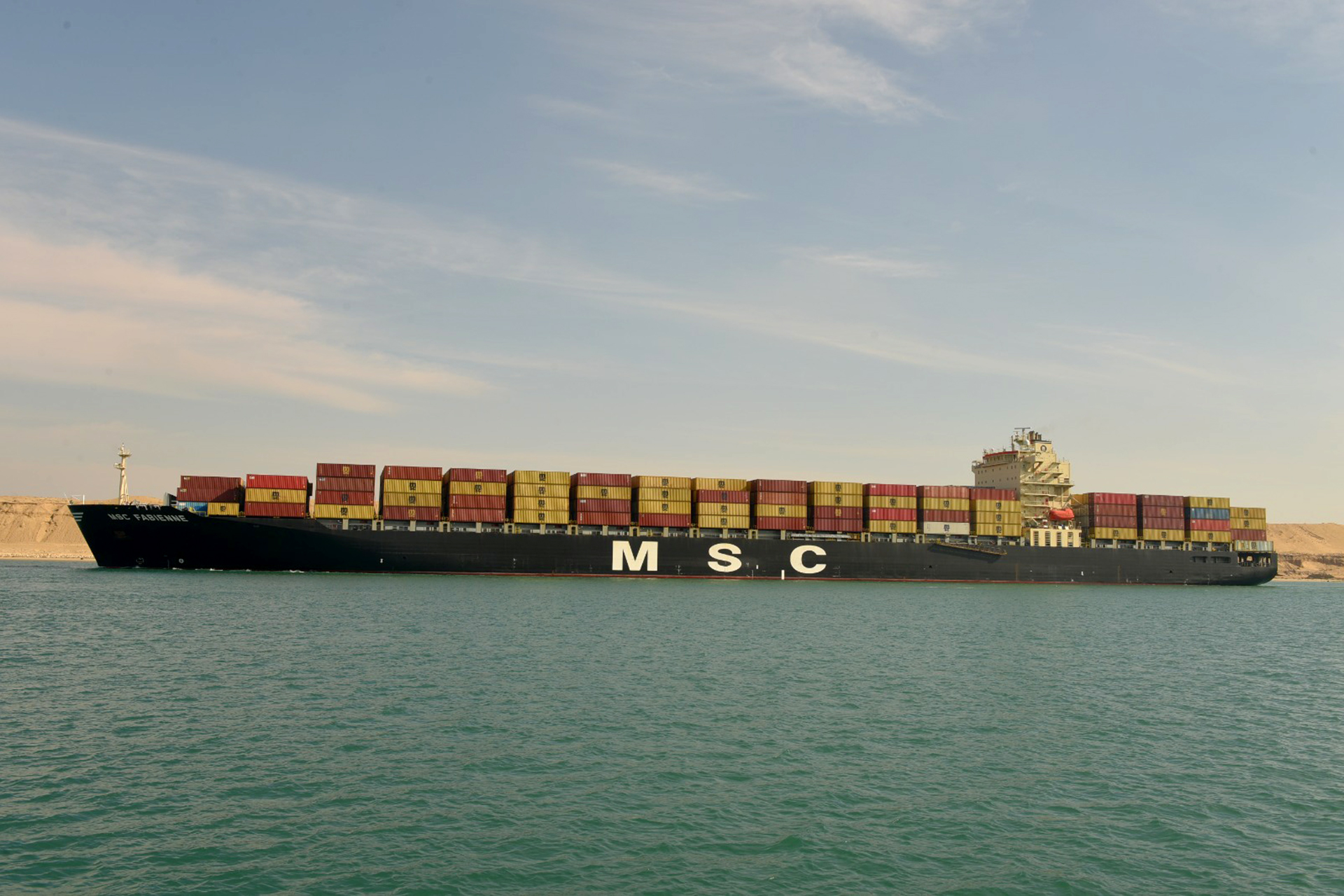The Suez Canal was negatively affected by the Red Sea attacks (Source: Suez Canal Media Office)
Chairman of the Suez Canal Authority, Osama Rabie, said that the authority is keen on continuous consultation with customers and direct coordination to find joint working mechanisms that can reduce the effects of the current crisis in the Red Sea.
Rabie pointed out - during a meeting with the CEO of the MSC Group, Soren Toft, that the crisis poses more challenges to the movement of trade through the canal and global supply chains.
Since mid-November, the Houthis have been launching attacks on commercial ships in the Red Sea that they say are Israeli or heading to Israeli ports, expanding the war they are waging on the Gaza Strip.
The United States and Britain launched strikes on Yemeni targets to stop the attacks, which led to disruption of the global movement of shipping and forced companies to change the route of their flights to longer and more expensive routes.
The Suez Canal was affected by the decline in navigation in the Red Sea (Suez Canal Media Office)
warning
Last Sunday, the Executive Director of the International Monetary Fund, Kristalina Georgieva, warned of the repercussions of the prolonged war in the Gaza Strip. She said, “I fear more than ever that the conflict will be prolonged, because if it continues, the risks of its expansion will increase.”
Georgieva pointed out that navigation traffic in the Red Sea declined by 40% this year, according to International Monetary Fund estimates.
Analysts in the maritime shipping sector revealed last Friday that more ships loaded with grain turned away from the Suez Canal to take the Cape of Good Hope route last week, with continued fears of attacks on ships in the Red Sea.
Ishan Bhanu, a senior agricultural commodities analyst at consulting firm Kpler, said 13 more ships were diverted last week, bringing the total shipments diverted away through the Red Sea to about 5.2 million tons of grain on about 90 ships since the attacks began late last year. .
About 7 million tons of grain per month usually crosses the Suez Canal into the Red Sea, but other types of shipping have decreased significantly with the continuation of attacks in the Red Sea.
Oil delays
The Director of Energy Markets and Security at the International Energy Agency, Keisuke Sadamori, said last week that the delay in the delivery of oil products, due to the diversion of ships to avoid attacks in the Red Sea, is affecting product markets in Europe in particular.
Reuters quoted Sadamori as saying that the increase in oil supplies in the world comes from outside the OPEC Plus group, most of which comes from the United States, Brazil and Guyana, and demand growth is not very strong due to macroeconomic concerns.
Source: Al Jazeera + Reuters

